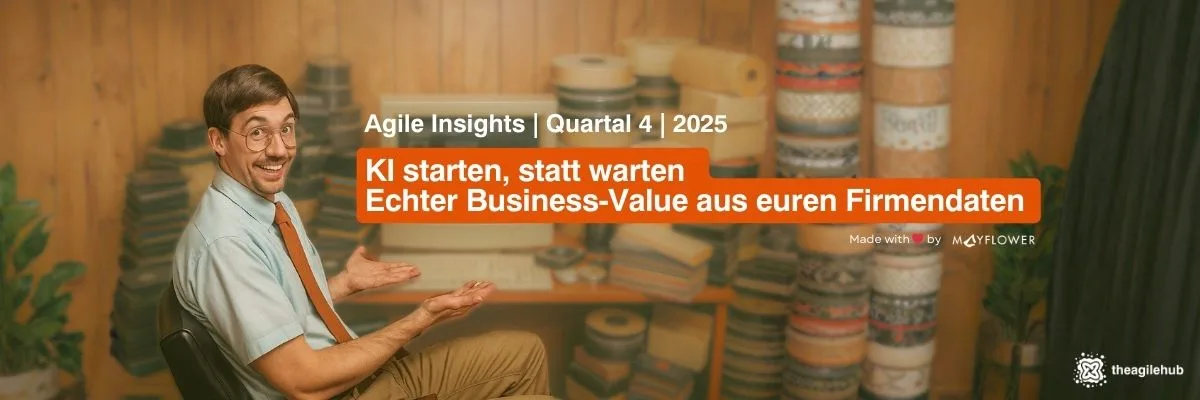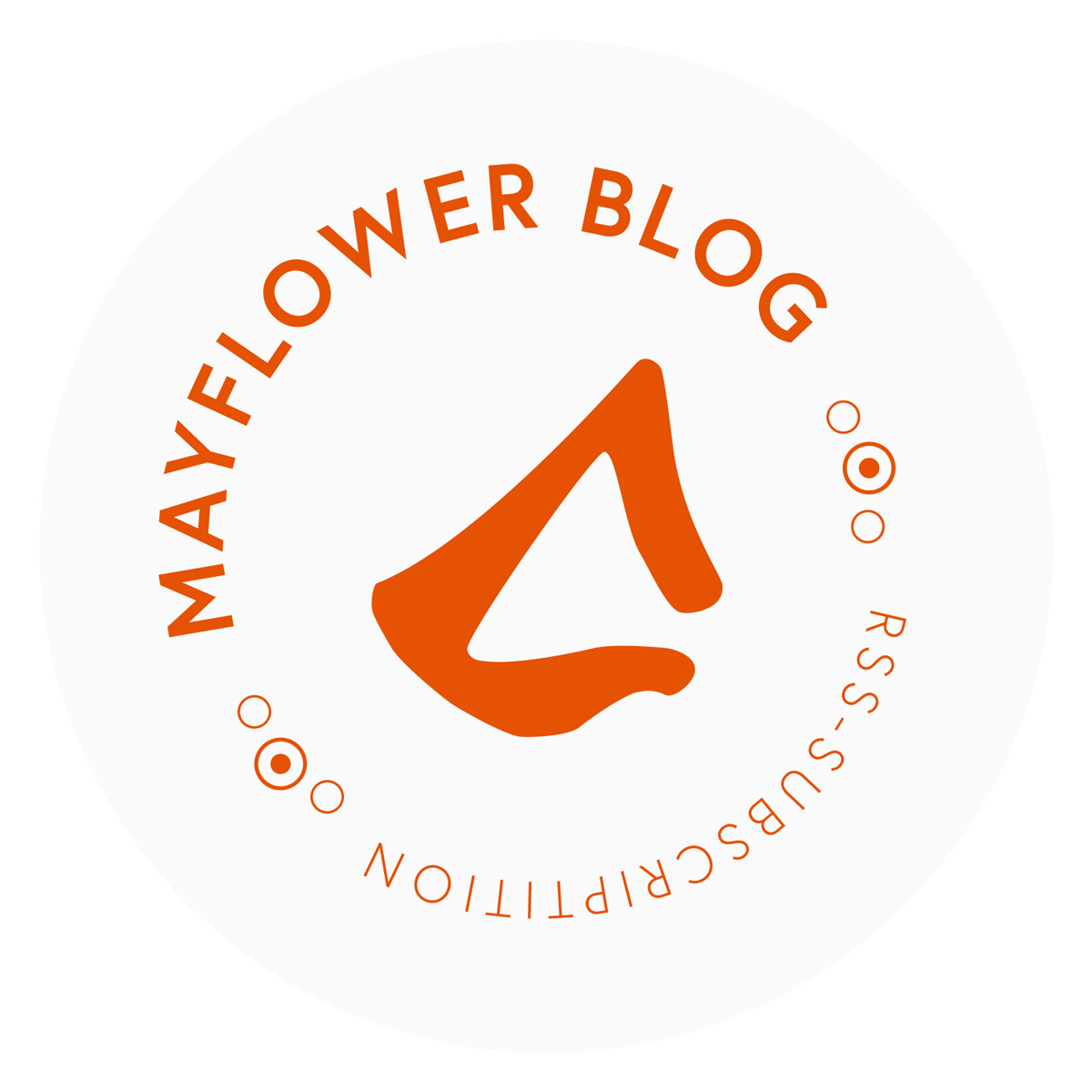Following philosopher Yuval-Noha Harari, cooperation is the key to our human being and what humans achieved in evolution, making us humans more successful than other creatures on earth. „It is the unprecedented ability to cooperate flexibly in large numbers“ that makes us unique. No other creature on earth can cooperate in a way like this, ants and bees, f.e. also cooperate, but in a very rigid way or only close relatives. So you can’t compare an ant workforce and their cooperation with humans.
Interactions with strangers and building new social cooperation networks in such an effective way is a human privilege.
Kurze Unterbrechung – das Agile-Nachschlagewerk unserer Agile Community

Human Cooperation
When it comes to teams, in the digital world, we make human cooperation very often something we want to control plan and guide. A team is a social system, and so it is complex by nature, and as we all know: complexity can not be controlled; it can just be orchestrated a bit.
There are many great answers out there that make the team a great team. Just to mention Google’s Project „Aristoteles“ as one of the most outstanding and relevant studies when it comes to teams. But this outcome is not a blueprint one can just copy and paste to become a great and highly effective team. Please note, you can not put „psychology safety“ to a team; this is not an ingredient to add to make your meal tasty. It is something that emerges when a bunch of people know each other and develops a new social system.
So what you currently can observe in many companies in the wild, is that we are getting less human in our behavior and more like ants and bees – we implement rules and cut cooperation by accident.
Nothing to build here!
But isn’t everybody talking about collaboration in the digital transformational new work environment out there? For sure, but they miss a crucial point: they try to instrumentalize humans with the right intention to build cooperation, but this is the blind spot – human social interaction is nothing you can build or design.
Great teams are not a bunch of people you throw together, add a scrum master or (agile) coach. Then add some team-building exercises on the high rope course, BBQ in the evening, and then, after all that expensive effort, you will have a self-organized team of highly motivated individuals you can win any war with?
You are still just having a bunch of people, they may now know their names, know who is afraid of height and who is vegetarian – but if you are honest with yourself this is not the goal you wanted to achieve, this is no cooperation, this is just knowing each other a little bit better.
Creativity, Curiosity, and Craziness
Observing how can support the growth of cooperation in social systems, these three points can help you to set the stage for teams to emerge – the incredible three C – Creativity, Curiosity, and Craziness.
Kurze Unterbechung
Das ist dein Alltag?
Keine Sorge – Hilfe ist nah! Melde Dich unverbindlich bei uns und wir schauen uns gemeinsam an, ob und wie wir Dich unterstützen können.
These three points are deeply anchored in being human because these are the three key factors that raise us from a child to an adult and that were required for all great achievements humankind made so far as a cooperative creature in good and evil.
Whatever it is you are seeking won’t come out in the form you’re expecting.
Haruki Murakami
Creativity
What sounds like a bullet point in a CV or some attribute a mom would give her beloved child. Einstein is often quoted with „Play is the highest form of research“ (btw. this quote as now official status and was never confirmed) – Creativity is the game we see in every new problem showing up in our world.
Problem-solving is not a rigid process; problem-solving is a creative process – especially when you have to deal with a complex environment and the resulting challenges. You don’t need ants or bees; you need real human creativity. And you need diverse creativity.
Every human can solve problems, experts can support the context – but working on a strategy, you not only want, but you also need diverse points of view.
Changing the environment
How to get various points of view? Empathize? No, just hire diverse people and give them an environment where their creativity can be present and emerge, even in the case when they may have the wrong profession. No profession is wrong; it just adds one more viewpoint to your team.
In such an environment, experiments are not only allowed, but they are also the essential ingredient of the day to day work. In such environments, people know the difference between a hypothesis and an opinion. In these agree to disagree is a breakout to new points of view and not only a sentence your coach told you once in a retrospective meeting.
There are too many nuances of creativity out there to explain, so sometimes you have to look a little bit closer and be patient before you spot the creativity emerging in a team. But it can’t be forced or planned – so you have to trust the human in the humans. It will payout.
I dream. Sometimes I think that’s the only right thing to do.
Haruki Murakami
Curiosity
The reason why you can walk around and have an upright stand is curiosity. Nobody told you as a child to get up on your feet and how to do it. At some point, you just got curious about walking around, and you figured out, by observing, trying, and experimenting, how to get this task done.
So as you notice, curiosity is also a human strength. The strength that brought us even outside our solar system – thinking about the two Voyager missions – to learn how to push humankind’s boundaries.
In the day to day life and especially in working environments, curiosity often is trapped in our comfort zone. Why should we, as an individual or team, push our boundaries, and discover new things when there are so many working solutions and patterns already there?
The reason why we should is eager for knowledge: learning new skills and abilities is not taking place inside our comfort zone. We need visionary curiosity about trying things we never tried before in a way we never did it before. As a team, this implicates trust in teammates and their strength even as the ability to solve problems. And – as mentioned earlier – the mindset of agreeing to disagree.
„What happens when people open their hearts? „
„They get better.“
Haruki Murakami
Craziness
Last but not least, the hidden champion and often misunderstood superpower of human cooperation is craziness.
Being crazy nowadays, in most cases, is not used to attribute a strength, it is more an attribution for „abnormal „behavior in a normalized world. During you grow up and get a working part of society, you are often not allowed just to be crazy, and you start hiding this craziness behind your social mask.
Every one of us is crazy in a particular way, and if we want to know each other, we should no longer hide this essential part of our selves. When you open up in a way that lets your craziness out of the box, this will not make you more authentic – you are showing who you are.
This way of showing who you are is more important because this often so-called „authenticity“ is just another form of the social mask we wear and the image – how we want to be seen by others. Take off your social cover, and being yourself will build the trust that is mandatory to achieve a mental model inside of a team, a mental model in which curiosity and creativity will lead the team to the boundaries and further.
Emerging Cooperation
If you remember where we started on our journey to human nature and cooperation (which separates us from any other known being o earth), you may have noticed that this is not a process you can design and plan upfront. Cooperation is something very precious, and it emerges in social systems if it is intended to emerge. Why is it often restrained by accident in our new work environments where we a so proud of our social skills and methods?
For me, the reasons are simple and complicated in the same way. We are trapped in our blind spot, so we can’t recognize what we are destroying and our behavior to normalize and take control of all the things around us.
We are control freaks and not chaos lovers – control makes us feel safe, and being safe is also evolutionally programmed in our human nature. For some reason, it is necessary to hand over control to chaos and let things emerge naturally.
We have to create a space where people are doing work and not only their job. We have to create an environment where they are invited to be creative, curious, and crazy without the fear of being judged for being a little bit different but more human than the others around.
Teams are emerging and not designed, if you put together the right people, these people will attract other people – and these attracted people are most of the time the fit you want for the team and as a social system.
Bringing back the real power of human cooperation will be the key to great teams, greats ideas, and are the key to our future as individuals and humans. Don’t be a jerk; be a human!



Schreibe einen Kommentar